The Gift of South Dakota
Subscriptions to South Dakota Magazine make great gifts!
Subscribe today — 1 year (6 issues) is just $29!
Terry Peak’s Inferno
Feb 13, 2018
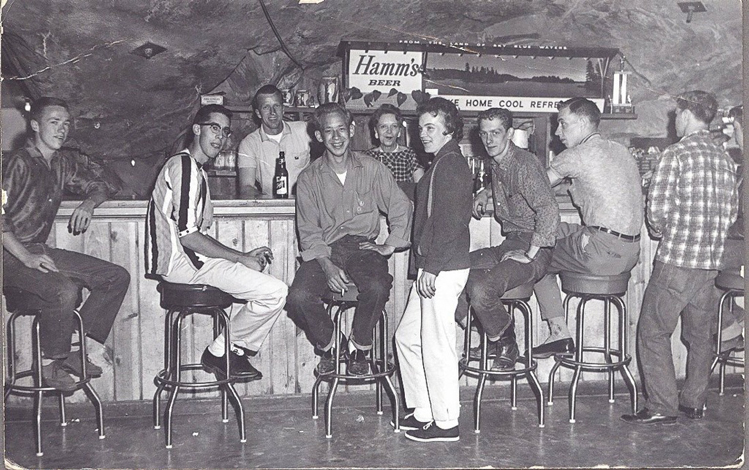 |
| A 1950s-era scene inside the Inferno Bar. |
South Dakotans who enjoy winter fun at Terry Peak know the Inferno, or at least they think they do. The black diamond run is the steep piece of the mountain that finishes your ski down under the red chair. But there’s another Inferno on the mountain, and it belongs on a list of classics with the Spur, the Crow Bar, Murphy’s, the Harbor or Dirty Nelly’s — South Dakota’s legendary adult watering holes.
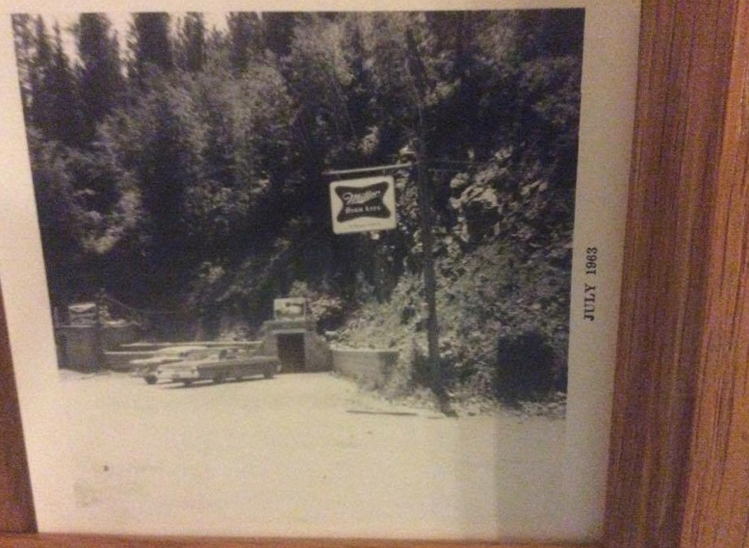 |
| A Polaroid from 1963 showing the entrance to the Inferno. |
The Inferno Bar
It’s not clear when the adventure of the Inferno Bar began. Its early days didn’t involve serving alcohol; it was a mine. At some point after the economics of digging and hauling gold out of this narrow tunnel into the mountain played out, a different type of entrepreneur took over. Ten or 15 yards into the old mine tunnel is a stope, or a cavern that’s been dug out inside the mine. This particular stope became the Inferno Bar by 1950.
From the outside on a normal weekend, the Inferno was under-imposing. Newell native and current Deadwood Mayor Chuck Turbiville drove there to meet some friends soon after high school graduation. Since he was looking for a bar, which is usually located inside a building, he drove by it a few times before realizing he was going to a mineshaft. He was amazed to walk into the cave and find a bar, full of people with a live band playing.
Photos from the 1950s show a wooden bar with at least a half dozen stools on a polished concrete floor. The bar included an area for the band, as well as a pool table and a jukebox.
Bathrooms
There’s some dispute about the nature and location of the restroom facilities in this former mine. At some points in its history, former patrons question whether it even had any. Other former patrons claim there was a bathroom down a drift to the left off the main stope. Others, with pictorial support, show a second entrance structure to the left of the main mine entrance that they describe as the bathroom. Dr. Robert Arnio, a Lead native now living in Rapid City, enjoyed the Inferno is his younger days and explained that the bathroom was down the drift, and then the tunnel looped back to the outside. As for the quality of the restroom facilities, suffice it to say that the Department of Health had a better sense of humor in that era.
Glory Days
From the 1950s through about 1978, the Inferno thrived as a “3.2” joint. In the days of lower drinking ages, South Dakota was one of the states that made a distinction between low point and high point beer. A “3.2” bar could only serve beer, and its alcohol content could not exceed 3.2 percent. The drinking age was 18, but the Inferno had a reputation for being “age flexible.” Lead students enjoyed the local watering hole in the 1960s and regularly celebrated their 18th birthdays there (the legal drinking age). The momentous occasion often came as a surprise to the owner, who had treated the new adult as a regular patron for some time. The Inferno operated before national security issues made fake driver’s licenses a near impossibility for creative teenagers.
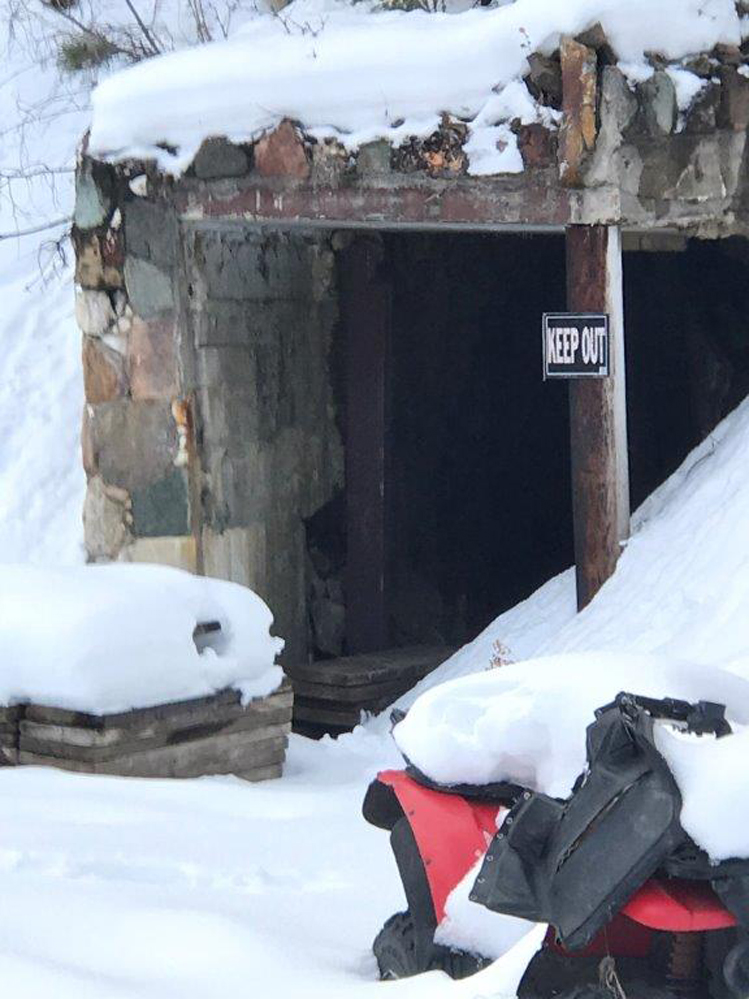 |
| The Inferno's exterior today. |
Marty Teupel Hogan grew up across the road from the Inferno. As youngsters, she and her sisters would run across the road on weekend mornings and look for change that patrons had dropped in the parking lot while digging through their pockets for their keys the night before.
Inside, the temperature didn’t change much with the seasons, due to the underground nature of the mine. It did come with a few other challenges. Lead native Marty Ann Apa reports that you didn’t want to wear good clothes, as the mine ceiling dripped and you could come out with a little rust color.
The Inferno regularly had bands and drew crowds of hundreds or more. To the right, inside the stope, is a relatively large area where the bands staged, unless it was a special occasion like the Days of ‘76. For special events there was a concrete slab built into the hillside, above the old toilet entrance, where the bands would play into the Nevada Gulch night air. The outdoor concerts must have been smashing successes, because the Inferno’s effort to resurrect itself in 1982 failed, at least in part, because of neighborhood memories and complaints about those events.
The Inferno not only served as a local tavern in Nevada Gulch, but also as a place for special homecomings in the tumultuous times of the 1960s. High school graduates were being drafted, trained and sent to fight in Vietnam, not exactly sunny prospects for those young men. Dr. Arnio recalled that when these young soldiers came home on leave, they’d see their parents first, and then meet up with their friends at the Inferno. The owners of the Inferno, sensitive to the challenges that lie ahead for these young soldiers, would stay open late into the morning, or until whenever the soldier wanted to call it a night.
The Days of ‘76
The Days of ’76, Deadwood’s annual summer celebration, had a near-cult following of people who never missed the event, and the Inferno was clearly a preferred destination. Every person who knew of the Inferno starts their stories with, “You should have seen the Days of ’76 … .” There is universal agreement that crowds numbered in the thousands.
Vehicles made due with parking as they could find space, filling both sides of Nevada Gulch from the bar down to Highway 85, and north up the canyon as far in the other direction, effectively shutting down the area and turning the canyon into one very large outdoor party. Beer was sold inside the mine/cave, and could then be carried back outside. But for the Days of ’76, there were also large horse watering tanks filled with water, ice and beer to handle the sizeable crowd.
The mineshaft goes straight into a steep mountainside that made a beautiful backdrop for the bands, and an irresistible canvass for the more creative ’76ers. Attendee Al Glodt reported seeing a lineup of “twelve to twenty moons” across the hillside above the band, a pretty amazing achievement considering the hillside the revelers climbed before dropping their drawers in unison.
Resurrecting the Inferno
The Inferno nearly came back to life in 1982, but its history proved too much to escape. Neighbors opposed the application, not so much because it was a bar, but the outdoor concerts, traffic and litter had a new generation of neighbors not so receptive to the glory days of the Inferno. It appears the application didn’t make it past the Lawrence County Commission.
A Shadow of Its Former Self
There’s no electricity in the Inferno anymore, so it’s careful-stepping back in to the cavern. The bar is gone, but part of an old tapestry still hangs as a reminder of where the Hamm’s beer sign stood guard. There’s still a chandelier and an old pool table, and the Pepsi machine is ready to go (pictured below).
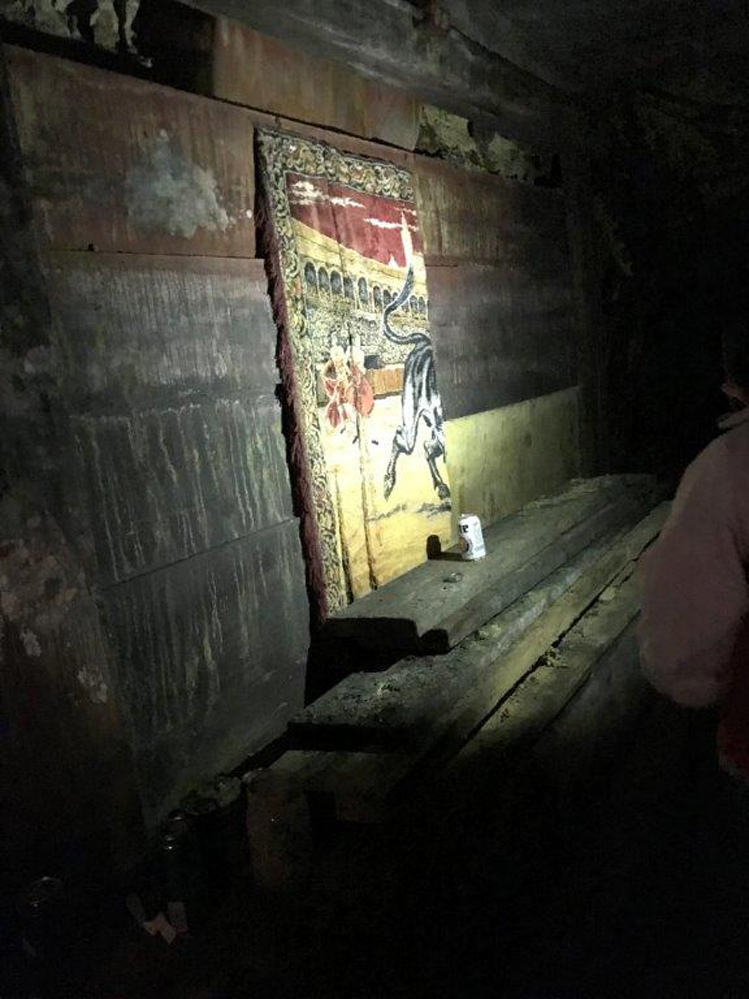
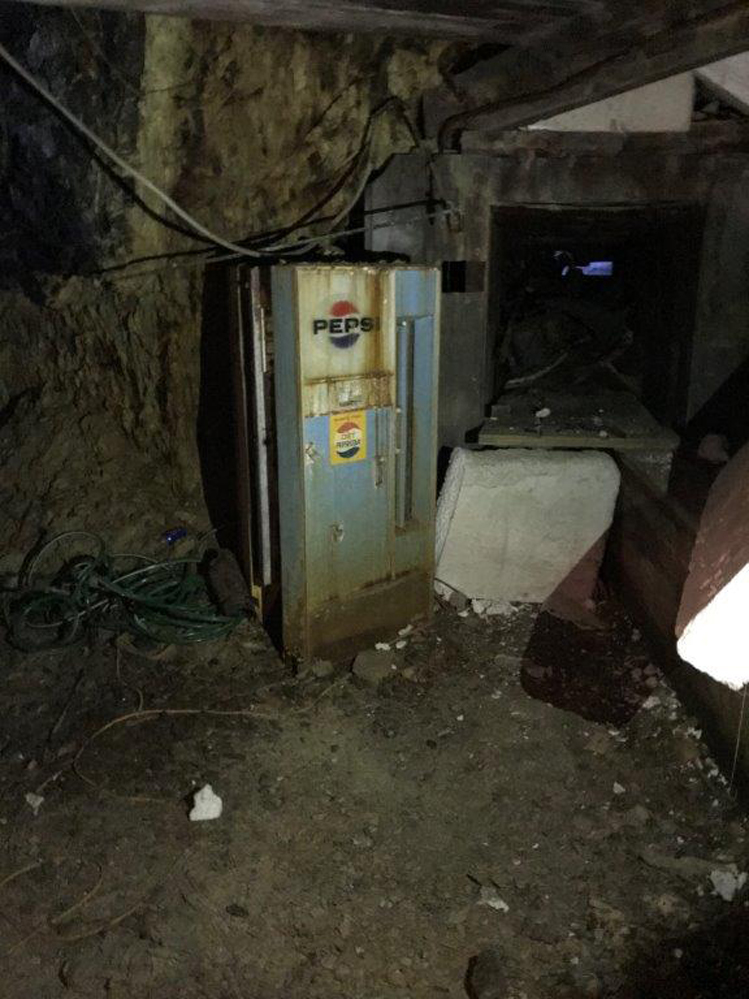
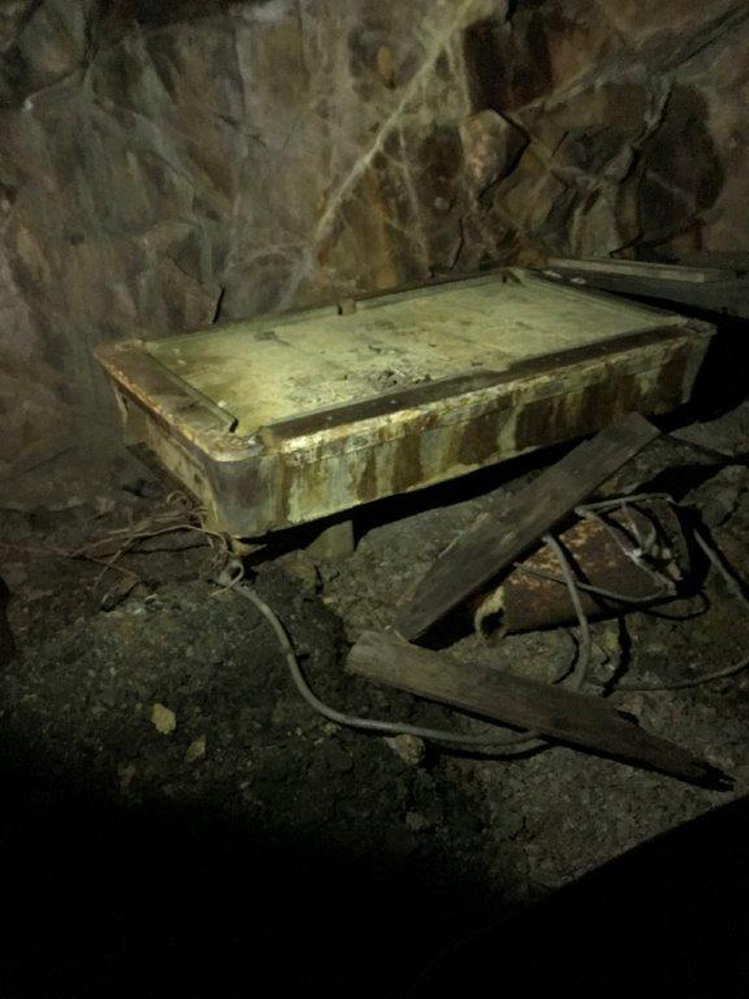
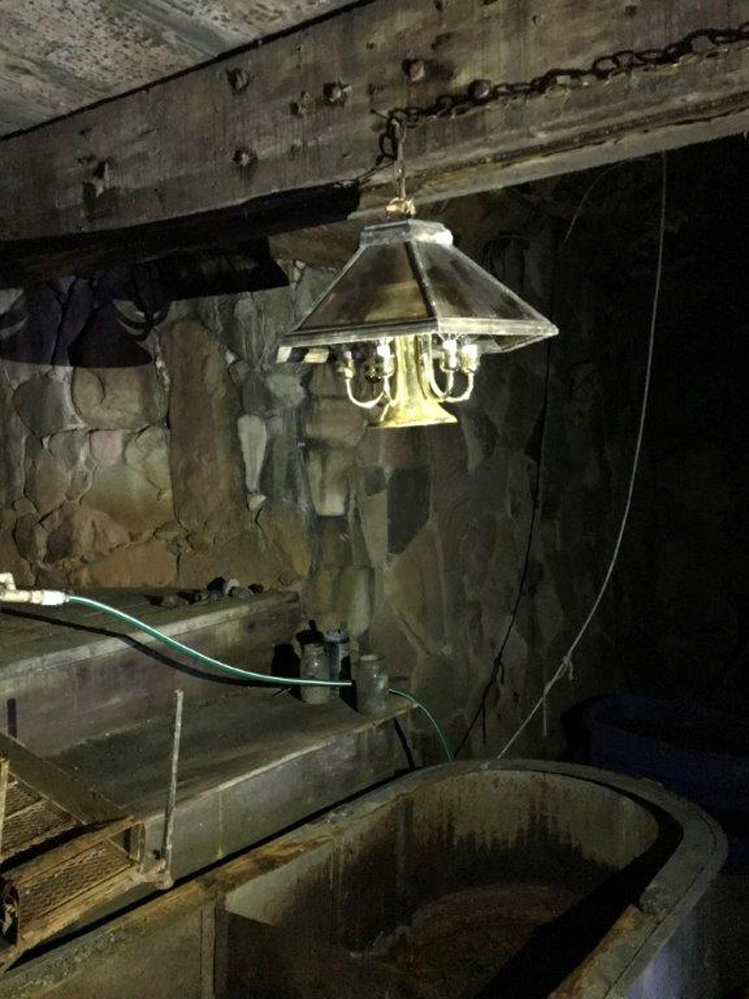
It wasn’t until after we left that I learned of an old challenge the bar used to have, and probably still does. The Inferno didn’t have a kitchen and didn’t serve food in that sense, but it had chips and candy bars. When Ole Teupel, who had worked there a few years, closed the bar at night, she hated to turn off the last light before scurrying out of the tunnel. As soon as the lights went out, the dark was like a dinner bell for the rats in the mineshaft to scurry in and finish up any goodies the patrons had left behind.
The old mine/cave is at rest these days and is not available for the public to enter. Not surprisingly, the owner doesn’t feel the old Inferno needs its former patrons hanging around. There was a time when tunes like Roy Orbison’s “Pretty Woman” created romantic moments in this cozy little underground cavern, but no more. These days, the folks who made great memories at the Inferno probably wouldn’t keep the neighbors up with any more revival concerts. But when you talk to them, every one smiles and fondly recounts the great memories they made at the Inferno, may it rest in peace.
Lee Schoenbeck grew up in Webster, practices law in Watertown, and is a freelance writer for the South Dakota Magazine website.


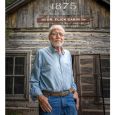

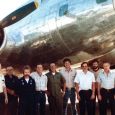
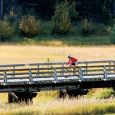

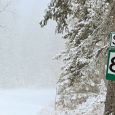
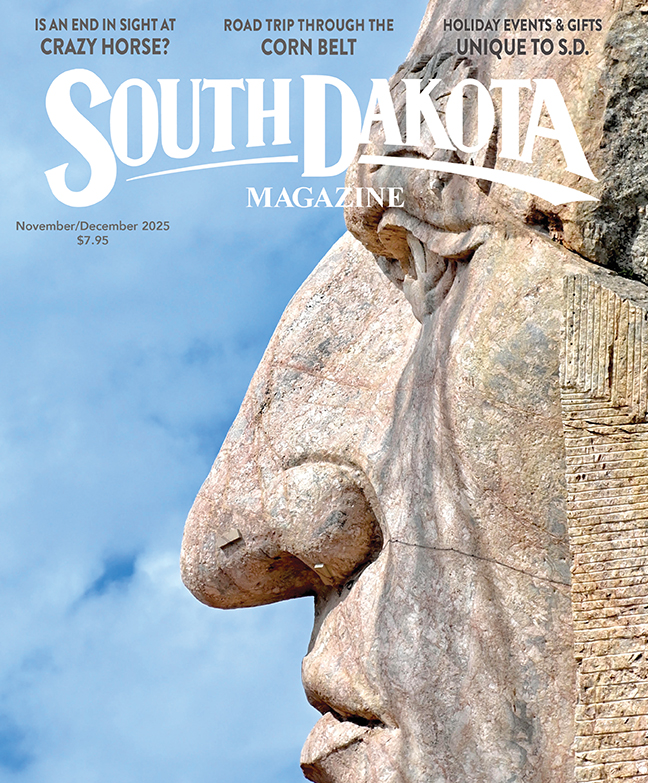

Comments
I particularly remember one night in 1960, when a couple of carloads of us showed up. One of the guys who was a lot of fun had polio as a child. His legs did not move as fast as his mouth. He convinced us that he needed one of those Inferno Bar Stools back in his SDSM&T Dorm Room to help him reach his desk.. And we felt we were obliged to make his wish a reality. It was not easy task to relay / sneak a bar stool out that long narrow mine tunnel and past the bouncer. But we did it.
Once back in the Dorm, Our guy need to lay down. But started complaining that the room was spinning around & around; and asked us to help him stop it.
Being the helpful group that we were, we told him to stick his affected leg over the side of the bed and drag his foot on the floor. We assured him that, based on sound engineering principles of friction, it would absolutely work.
Well he tried a huge number of times. And the rest of the dorm fueled by the Inferno laughed for 1/2 an hour over his repeated attempts, fed by helpful science based suggestions of variations.
The revelry was cut short the next morning, when we got a call from someone at the Inferno telling us that they needed their bar stool returned. We weren't in any shape to drive back to Deadwood, but got it back out or reverence for the Inferno.
As the old cheer goes:
"A Rambling Wreck from Tech.. and a Hell of an Engineer."
from the military and some of us were going to summer school in Spearfish. We were married 2 years later.
1, The entrance to a mine is an adit.
2. A horizontal tunnel is a drift, not a shaft.
3. A shaft is a vertical or sloping tunnel. Sometimes with a cage (an elevator for transporting miners).
4, A stope is a large room mined out to remove the ore.
I liked the article. I frequented the inferno from about 1954 to 1959 and probably a couple drop-ins after that.
I also recall how welcome the cool temps were inside the Inferno during the heat of August.